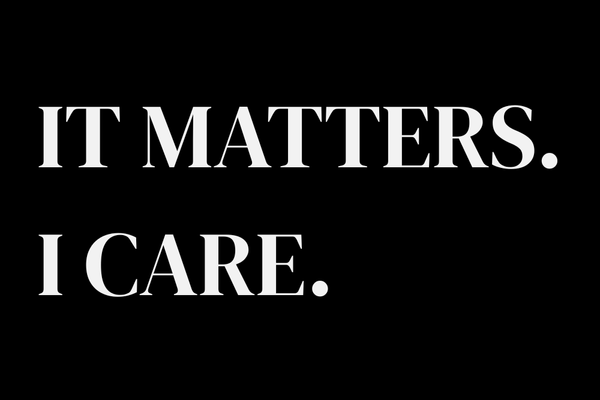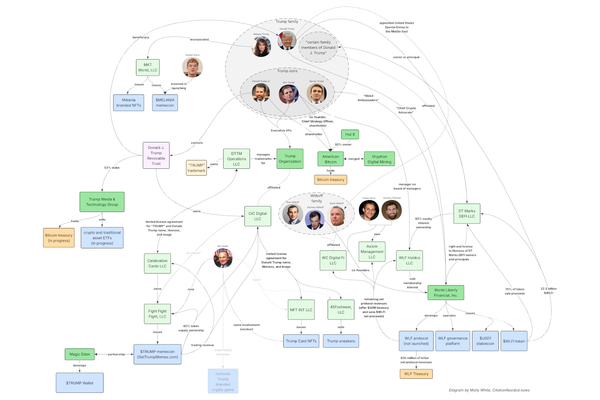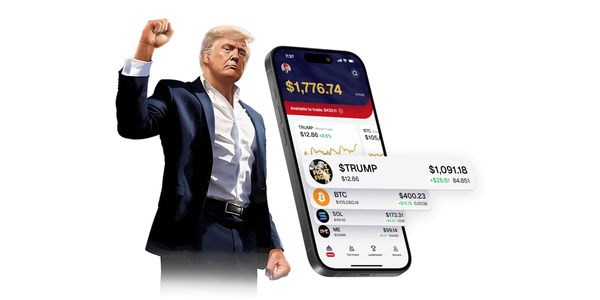Sam Bankman-Fried will testify, and I'll be there
I'm taking this show on the road to hear Sam Bankman-Fried testify in person.


Eavesdropping on a telephone conference between the judge and the legal teams this morning, I received confirmation of what I've been increasingly suspecting as this trial has progressed: Sam Bankman-Fried will testify.
He's likely to take the stand beginning tomorrow. Within an hour of hearing the news I'd booked a flight and threw my notebook and laptop in a bag. I am currently writing this from several thousand feet in the air, en route to New York City so I can join the throng of reporters, crypto skeptics and enthusiasts, and other curious onlookers who will line up at the Manhattan courthouse tomorrow morning.

I've enjoyed writing about this trial remotely, in part because I'm not forced offline for much of the day,a and so can pull in a lot of context and research that might be challenging if I was onsite. But reading court transcripts, poring over prosecutors' exhibits, and eventually hearing secondhand accounts from journalists in the courtroom simply won't suffice when it's Sam Bankman-Fried himself on the stand. I have got to be there.
Why is testifying such a big deal?
Whether a defendant should take the stand in a criminal case is a major decision for any defense team. A likable, genuine-sounding, and well-controlled defendant can help to win over a jury with their testimony, making jurors more sympathetic to the defense's version of events after hearing it in the defendant's own words. And while jurors are reminded that it is not up to the defendant to prove their own innocence, not taking the stand sometimes leaves the impression that the defendant has something to hide.
Conversely, defendant testimony can tank a case. Not only does the defendant answer questions posed by their own friendly legal team, taking the stand also means being cross-examined by the prosecution — and the prosecutors in this case have seemed extremely capable. Those prosecutors can take advantage of having the defendant on the stand to ask questions they otherwise might not be able to, and (further) impeach the defendant's credibility by catching them in a lie or drawing attention to past statements that conflict with what they say under oath. Bankman-Fried got a little squirmy even in front of regular interviewers following the FTX collapse; he doesn't seem likely to hold up well in front of experienced cross-examiners.
Bankman-Fried is not the type of likable, genuine-sounding, well-controlled defendant who is apt to win over a jury. Though he undoubtedly managed to charm many people in the past, that was under vastly different circumstances: he was a (paper) billionaire sometimes described as the next J.P. Morgan, his (apparently carefully-crafted) reputation portrayed him as a young, nerdy, kind of weird innovator who was going to be the good guy in the often seedy crypto world, and his face plastered covers of magazines that ran stories about how he was planning to use all the wealth he was amassing to end suffering and make the world a better place.
But jurors are not meeting Bankman-Fried on his luxurious Bahamian home turf where he reigns over devoted employees. They're not watching him answer softball questions by adoring interviewers onstage at glitzy crypto conferences. Instead, they've just spent three weeks hearing that he was a calculating, manipulative boss, friend, and boyfriend whose beliefs about risk and theft ruined the lives of countless victims. They've even heard how his once unruly hair and rumpled appearance were carefully engineered to build the mythology of the nerdy genius who was too busy changing the world to brush his hair, and now that that no longer serves him, they've discovered he's perfectly capable of getting a haircut and putting on a suit. And for all those people who Bankman-Fried successfully won over, there were also many who found his demeanor — even before he was suspected of any wrongdoing — to be arrogant and uncaring.
And there's a reason lawyers were trying desperately to get him to stop giving interviews following the FTX collapse: if anything he said then was untruthful, he can be confronted with those statements on the stand, and forced to make a choice: lie under oath now, or admit that he was lying then. Most defendants have some corpus of statements upon which prosecutors can draw; few have the volume Bankman-Fried has produced, and which he has helpfully packaged and delivered to prosecutors with a little bow via interviews on national TV or written statements to Congress.
Why is Bankman-Fried testifying?
It seems very unlikely that Bankman-Fried is testifying per the advice of his legal team. Observers have been fairly unanimous in speculating that Bankman-Fried's lawyers have been doing everything they possibly can to keep him from testifying, because it seems like there's almost only downside. It's not like Bankman-Fried is going to take the stand and suddenly conjure up a convincing explanation for how everything went wrong that doesn't involve multiple crimes on his part. If there was such a convincing story to be told, we would have heard it by now. Instead, the defense has been taking a scattershot approach, picking around the edges but introducing little doubt in the rather convincing explanation from prosecutors: that everything fell apart because of Bankman-Fried's massive, intentional fraud.
A defense team can tell Bankman-Fried that testifying is a terrible idea. They can try to reason with him, or frighten him by regaling him with all of the possible consequences of doing so. But ultimately, they can't stop him from testifying. He has a right to testify, whether they want him to or not.
Part of me wondered if he would promise his legal team that he wouldn't testify, only to impulsively decide to take the stand at the last moment. He seems to have at least extended them the courtesy of giving them advance notice, letting them prepare their side of questioning, and hopefully coach him a little bit for what might come his way during cross-examination.
But ultimately, it seems like the decision to testify probably came from Bankman-Fried.
Will it work?
Bankman-Fried may well believe that he's got such a convincing story that he'll have the jury delivering a "not guilty" verdict by the end of his testimony. If there was one takeaway from his media tour, it was that he seemed to believe that if he just had the chance to explain himself, everyone would understand that he's a good guy who certainly committed no crimes. I can sort of see where he came to this confidence — after all, there was a time when he talked venture capitalists and others into giving him hundreds of millions of dollars.
However, given the prosecution's case so far and the complete lack of a case from the defense, this seems mind-bogglingly unlikely. His best hope at this point, I think, is to introduce just enough doubt with one single juror to hang the jury, preventing them from coming to a verdict at all.
Though this may be his best case scenario, it's still not a good scenario. A hung jury doesn't necessarily mean the prosecution goes "oh well", unlocks the handcuffs, and escorts Bankman-Fried out the doors onto the streets of Manhattan to wreak further havoc. There are certainly instances in which prosecutors choose not to retry cases, but with such a high-profile defendant and apparently strong case, I doubt this is one of them. At best, Bankman-Fried might find himself sitting in MDC Brooklyn for another couple of months before going through the whole thing again. There would be some advantages — he'd be going into a new case with knowledge of the prosecution's strategy, he might be able to get better lawyers and prepare a new defense, or he could potentially finally opt to take a plea deal.b
A perhaps more likely scenario, however, is that testifying doesn't go well for him. He could solidify his guilt in the minds of the jurors, or influence Judge Kaplan's eventual sentencing determination. If he's caught lying under oath, he could even end up with additional charges.
But, for a man willing to take huge risks for even a slight chance at a reward, testifying was the obvious choice.
I'm paying my own way for this trip to New York, so if you've been considering signing up for a pay-what-you-want subscription (or perhaps giving one to a friend as a gift), now would be a great time to pull the trigger! I owe a huge thank you to all who already subscribe for even making this trip possible. I can't wait to keep you updated from Manhattan on what's going on in this trial.




